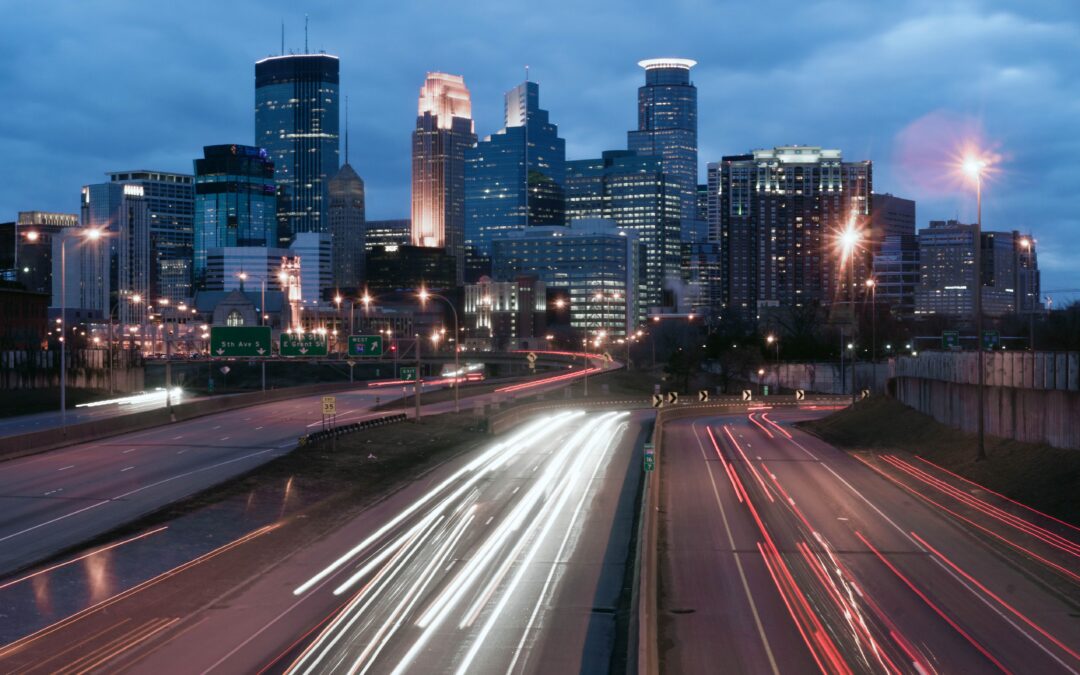I can’t say for sure exactly how any of us come to understand, over the course of our lives, what our values are. I think they are shaped and influenced by our families, our friends, our experiences, and, to some extent, by our individual hardwiring.
I know that, for me, perhaps the single person who influenced my values the most was my dad, Rupert Archer Buchanan. He died when I was 14 — apparently of a heart arrhythmia, while he slept on Christmas Eve, 1984. He was 47.
My dad (seen here in a photo with me in the early 1970s in Oregon) was an activist — a “resistor,” in the parlance of today.
He was arrested at a sit-in protesting segregation in the early 1960s in the South and at anti-nuclear demonstrations in Washington State in the 1970s and 1980s (when, in at least one instance, he lay across the tracks in front of a train carrying nuclear warheads). His activism came at a price. He had been a promising young academic, a philosophy professor at the University of Toronto in the 1960s, but was denied tenure, probably in large part due to his tendency to alienate those in power with his constant critiques and unrelenting outspokenness. From there he went to Portland State University, where budget cuts compelled the Philosophy Department to shrink, forcing a layoff of the least tenured faculty member — him — that was staved off when the department said it would instead take rolling unpaid leaves to keep him on.
I remember sitting with him when I was 14, helping with a budget that wasn’t balancing, debating how much he really would need to spend on groceries each week. His career challenges coupled with a divorce meant he was downwardly mobile, economically, and in pretty much perpetual personal upheaval for as long as I can remember — from my parents’ contentious separation when I was five years old to his string of different addresses and different relationships.
But even as he struggled to right the course of his personal life, he always acted with clarity when he saw what he perceived to be injustice — even if it made everyone, especially his kids, cringe. We certainly would cringe when, for example, he intervened in a conversation among our friends to tell us not to call a teacher a “girl.” “Woman,” he would say, sternly. Or when my friend used a homophobic term and he saw my dad’s temper in full force. (It was a while before that friend accepted another invitation from me when I was at my dad’s.)
When my dad told me that he was going to spend a summer picking fruit with migrant farm workers to better understand their lives, my first thought, at I think age 10 or 11, was to wonder why he might not spend the summer doing stuff with me instead? But later, as an adult, I looked back at that with a kind of awe — and a greater understanding and respect.
Since he died, I always take in the news of the day with a question in my mind: “What would Dad have made of this?”
When Nelson Mandela was freed in 1990 and the hideous apartheid regime in South Africa ended in the years following, I thought of my dad celebrating somewhere. When Barack Obama was elected in 2008, I thought of my dad, again, celebrating. He could never have imagined, I thought over the years following, that our country could simultaneously make so much progress and so little — electing (and re-electing) an African-American president and yet needing a movement to assert that “Black Lives Matter.”
I thought of him, too, on June 26, 2015, when the Supreme Court declared bans on gay marriage unconstitutional. I knew he would have smiled at the diversity of his extended family in Canada and the U.S., which includes blacks and Asians and Jews and a married lesbian couple.
But I have thought of him especially, this last week, as we have witnessed an American president insisting there were “very fine people” among the crowd of white supremacists in Charlottesville. I thought of him as I sat with my Jewish wife and daughters watching footage of that crowd as it chanted, among others things, “Jews will not replace us.”
At some level, none of us should be surprised that a president who has at the very least winked at white nationalists and the so-called “alt-right” throughout his political career — a man who insisted falsely that the first African-American president wasn’t born in the U.S., who literally bragged about sexual assault, and who labeled Mexicans “rapists” — would send positive signals to the avowedly racist, homophobic, and anti-Semitic “protestors” in Charlottesville.
And at another level, of course, his words — and perhaps especially last Tuesday’s press conference — were totally shocking.
Watching the news of corporate CEOs resigning from advisory boards and of nonprofits cancelling events at Mar-a-Lago, I couldn’t help wonder what they had been thinking in the first place? I say that fully aware of the risk of sounding self-righteous, fully recognizing that even many who didn’t vote for this president wanted to give him a chance, and fully understanding that those people who I know personally who voted for him did not do so with hate in their hearts.
Yet, seriously, why did it take this for so many to realize they did not want to affiliate with a “leader” who, though the winner in our Electoral College, seems not to believe in equity?
More optimistically, perhaps, the silver lining of this past week may be that now it’s finally clear what the stakes are. It may be that there is finally a level of clarity and agreement among the vast majority of Americans that they must stand up for the principles of equality that make this country great.
At CEP, we are struggling — institutionally and as individuals — with what to do in this challenging moment for our country. We work with donors and foundations with a range of goals to help them be more effective. We work with foundations that might be labelled liberal and with those that might be labelled conservative.
But we’re very clear that we have no interest in working with those who advocate for the denial of basic human rights to any person, those who channel or encourage hate, those who do not see diversity as the strength that it is, or those who deny science and facts. We have no interest in helping them be more effective.
I am in a lot of conversations with foundation leaders whose values I share and whose goals I laud who are struggling with the question of what, exactly, to do in this moment. I don’t have the answers. But I do think that all of us, myself included, would do well to be a little more willing to put ourselves (and our organizations) on the line, like my dad did, to stand up against inequality and injustice. He didn’t always do it well, or effectively, but unlike a lot of people of relative privilege — and as a straight, white guy born into a squarely middle-class family, he certainly was relatively privileged — he put himself out there for what he saw as right and just. He took real risks for the greater good.
And if there’s anything I have realized in this past week, it is that, at age 47 myself, I need to figure out how to be a little more like my dad.
Phil Buchanan is president of CEP, author of “Giving Done Right: Effective Philanthropy and Making Every Dollar Count,” and co-host of the Giving Done Right podcast.


